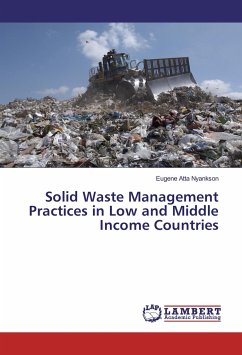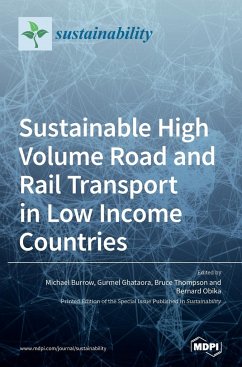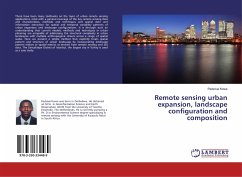
Solid Waste Management Practices in Low and Middle Income Countries
Versandkostenfrei!
Versandfertig in 6-10 Tagen
33,99 €
inkl. MwSt.

PAYBACK Punkte
17 °P sammeln!
Solid Waste Management is one of the major urban development challenges in most urban and peri-urban areas. Unfortunately in many developing countries, the system for managing wastes is rudimentary and cannot cope with the volumes of wastes generated. Due to inefficiency in the waste collection system, cities in most developing countries are being inundated with so much filth from domestic and commercial activities thereby posing serious threat to human health and the environment. This book investigates the waste management practices across the socio-economic divide in most Ghanaian urban citi...
Solid Waste Management is one of the major urban development challenges in most urban and peri-urban areas. Unfortunately in many developing countries, the system for managing wastes is rudimentary and cannot cope with the volumes of wastes generated. Due to inefficiency in the waste collection system, cities in most developing countries are being inundated with so much filth from domestic and commercial activities thereby posing serious threat to human health and the environment. This book investigates the waste management practices across the socio-economic divide in most Ghanaian urban cities. The study established that inadequate operational funding, inappropriate technology, lack of trained manpower, weak policies and ignorance were very key in determining the poor waste management practices in Ghana. The study concludes that the occurrence of poor waste management practices in urban areas of most developing countries have exerted pressure on development by creating fear, anxiety, loss of lives and property. It recommends that, waste management be prioritized. It is hoped that this piece of work will contribute positively to policy frameworks in low and middle income countries












